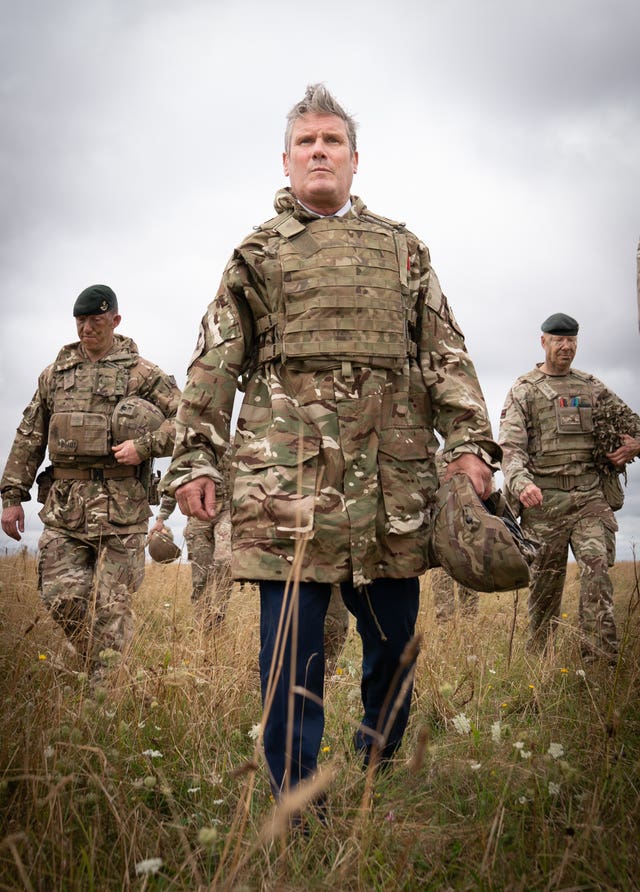Starmer warned to boost defence spending or be consigned to ‘bin of history’
Former head of the army Lord Dannatt said the military could face embarrassment if asked to secure any Ukraine peace deal.

Sir Keir Starmer has been warned by a former head of the army that he faces being consigned to the dustbin of history unless the Government significantly hikes defence spending.
Ex-chief of the general staff Lord Dannatt said spending should rise to a 3.5% share of the economy.
The UK currently spends around 2.3% of gross domestic product on defence, a figure the Government wants to increase to 2.5%.

The Government has promised its strategic defence review will set out the “pathway” to reach that 2.5% goal, but Lord Dannatt said the process would be a “failure” unless spending went even higher.
“Unless Keir Starmer and Rachel Reeves can find ways of producing more money, well beyond 2.5% towards 3% or 3.5% for starters on our defence budget, then this strategic defence review is going to be hollow, it’s going to be a failure and, frankly, it’ll consign Keir Starmer to the bin of history,” he said.
The UK and its allies are under pressure from Donald Trump’s United States to do more to shoulder the burden of European defence.
Lord Dannatt, head of the army from 2006 to 2009, told BBC Radio 4’s Week in Westminster the UK military is “so run down” it could not lead a future peacekeeping mission in Ukraine.
He said around 40,000 UK troops could be needed for such a mission and “we just haven’t got that number available”.
“Our military is so run down at the present moment, numerically and as far as capability and equipment is concerned, it would potentially be quite embarrassing,” he said.
“If we were to deploy 10,000 troops, each rotation for six months, that would effectively tie up 30,000 or 40,000 troops – and we just haven’t got that number available.
“So there are some big issues here that today’s politicians won’t really have considered.”
Former Nato deputy supreme allied commander General Sir Richard Shirreff suggested defence spending would have to rise to Cold War levels of around 4%.
The retired officer told BBC Radio 4’s Today it was a “defining moment” because Europe “cannot trust or rely on the United States” as it had “effectively given up leadership of the free world” due to Mr Trump’s approach to the Ukraine crisis.
Setting out what was required, he said: “We’re talking about moving back to levels of defence spending not seen since the Cold War.”
He said it would require “real sacrifice”, but “unless it’s made we are not going to be able to enjoy peace” because Russia would continue to represent a threat.

He said: “The only way we are going to enjoy peace is through effective deterrence, a Nato band of deterrence from the Baltic to the Black Sea, and that will need to be paid for.”
Nato secretary general Mark Rutte wants to see spending rise to more than 3%.
Mr Rutte told the Munich Security Conference that Donald Trump was right to argue for European nations to do more to pay for security on the continent.
“It is simply not fair if European Nato countries are paying less for their collective defence than the US is paying for that because the US would also like to lower its taxes or to spend more on education or whatever you want to spend it on.
“The argument cannot be that we are so poor here – we are the richest part of the world, the money is there. That cannot be the problem.”
The new Nato assessment process “will lead you to a number which is much, much more than 2%”.





